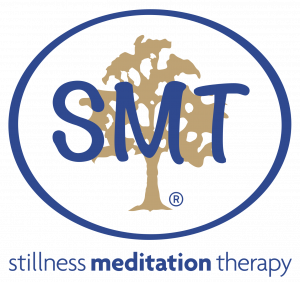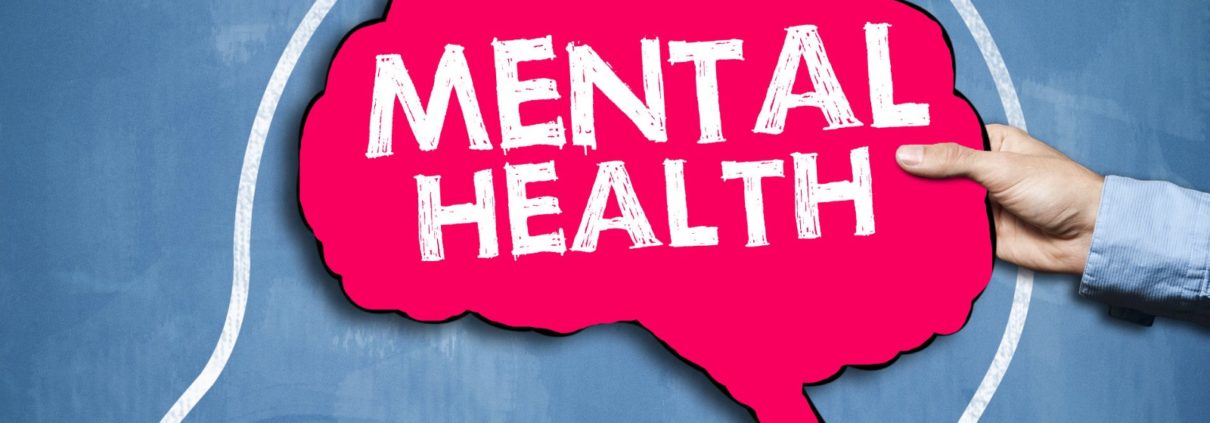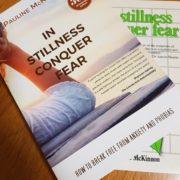Mental Health in 21stC
“We are all gifted with the ability to adapt – to literally change our minds” as quoted in In Stillness Conquer Fear, Pauline McKinnon, Garratt Publishing 2016 ed.
It’s not unusual for anyone to shift their opinion or idea or concept of their surroundings. And it’s not unusual for anyone to note that they’ve changed their mind – I guess we all do that quite regularly in greater and lesser degrees. That kind of shift or change of mind usually takes place as a logical shift or decision and yes, in favourable circumstances people can adapt accordingly.
The dictionary describes the ability to adapt as that of becoming accustomed to … getting a feel for … acclimatize to, adjust to, familiarize ourselves with – in short to ‘find our feet’ – and maybe that little English idiom simply sums the word up very neatly. But there’s more! Finding our feet does not always occur through the use of logic. Finding our feet can be extremely challenging, can be a terrifying prospect in certain circumstances and can also describe, albeit vaguely, the adaptation necessary in the desire to relieve or manage the effects of anxiety.
We are reminded daily how hundreds of millions of people throughout the world suffer from anxiety. Similarly, depression is rife, suicide (often unexpectedly) touches thousands of lives, violence has become a world-wide problem, physical pain (not uncommonly related to mental pain) holds many thousands to ransom. And then there is the powerful emotional pain and suffering surrounding loss and grief or is endured when trauma or illness invades people’s lives. All such reactions involve human mental health.
What is happening in society today to bring to light such widespread lack of mental health? And what can be set in place to truly supply a solution to this unacceptable community problem.
The essence of the problem is really that in truth, the modern and consumerist world is lacking contentment of spirit. Adaptation to life matters requires practical information, logical understanding and spiritual contentment – otherwise recognized as peace of mind.
As my followers know, through the publication of my own anxiety experience many years ago, I took courage and pioneered awareness of this level of mental health – also offering an effective solution.
From that outspoken act I continue the work of the late and great psychiatrist, Ainslie Meares, whose intellect, wisdom and medical knowledge introduced the practice of a particular style of meditation for mental health purposes. Meares’ powerful and world revolutionary book Relief Without Drugs changed millions of lives. From within his insightful teaching, people learned the art of mental rest and therefore, the art of adaptation to nourish and strengthen mental health – a natural therapy par excellence!
Today, meditation of many styles has captured the interest of the media and consequently, countless people are turning to similar practices.
In my view the true aim of meditation is to calm the mind and renew the spirit. For some, their practice of meditation is wholly related to philosophy or religion and that is excellent. Others practice other methods that perhaps are more suited to their personal belief system. My life’s work has been dedicated to the concept of ‘stillness’. Stillness Meditation as created by Meares is a form of therapy that induces mental rest. The practice of pure stillness is founded in the natural being and is taught for the purpose of experiencing less, not more, for a short time each day. The introduction of quiet!
What a magnificent idea given the constant ‘busy-ness’ that distracts so many today? What a wonderful way to foster the human ability to adapt to the challenges of living? The natural and simple practice of ‘stillness’ creates the perfect environment for allowing the mind the gift of true adaptation – to literally change in a manner that releases tension, reduces anxiety and facilitates resilience.
Meditation has the potential to transform lives. With less stress, less anxiety, less depression people become happier, more personally free and certainly more content. Greater fringe benefits from ‘stillness’ mean that pain can be managed with equilibrium – and may in time be barely noticed, immune function strengthens, physical health is better regulated and negative habits are overcome. And from this safe place, the power of emotional intelligence can reveal the ‘real’ person within and open the way for that calm and contented person to truly come alive.
All meditation, if committed to and sustained can be the premier solution to Mental Health in 21stC. I and my followers just happen to prefer the Meares style of Stillness Meditation Therapy. This is an important and, despite its long existence, lesser known work. We welcome your assistance in learning more about ‘stillness’ and in coming to this Centre to experience it. And if there’s anyone out there who would like to contribute in other ways to making a true and lasting difference to our troubled world of today, please make contact. Mental health in 21stC requires this!
Pauline McKinnon (c)
Melbourne, June 2019










